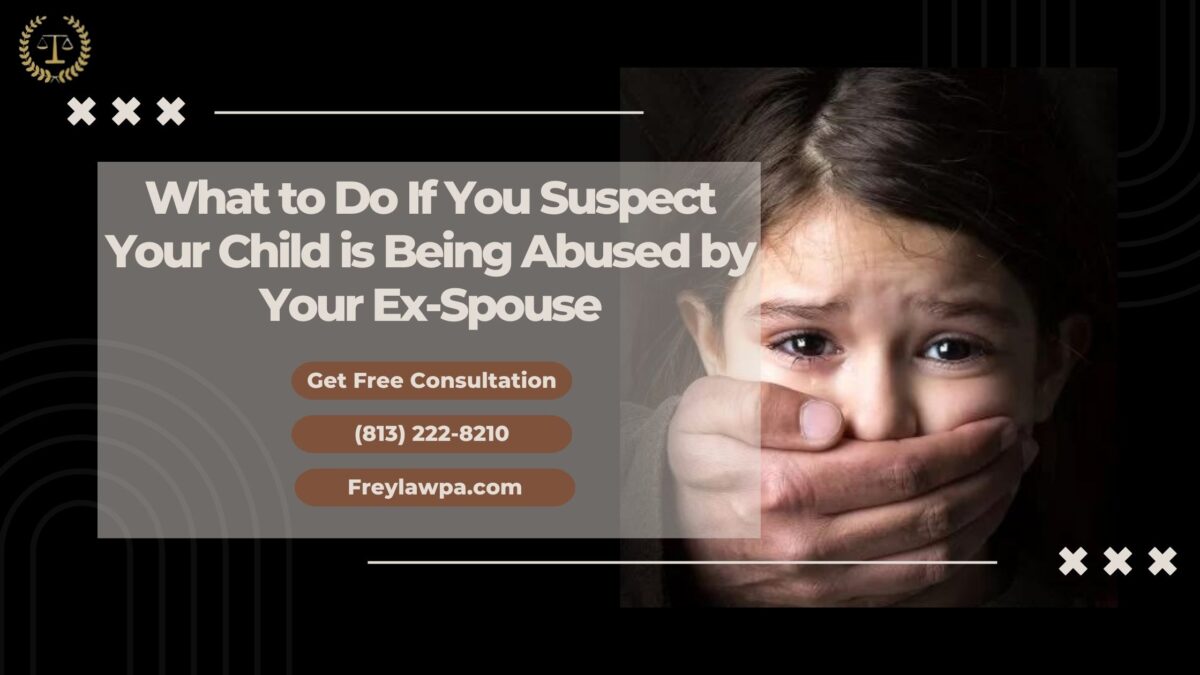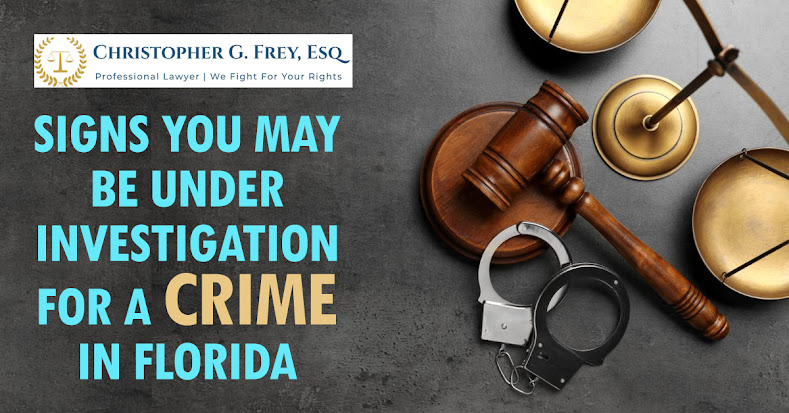Child Abuse by Ex-Spouse: What to Do If You Suspect
Divorce and child custody battles can be stressful and emotional, especially when you suspect that your child is being abused by your ex-spouse. Child abuse can have a long-lasting impact on a child's physical and emotional health, and it's important to take action to protect your child. In this article, we will discuss what to do if you suspect your child is being abused by your ex-spouse.
Signs of Child Abuse
Child abuse can take many forms, including physical, emotional, sexual, and neglect. As a parent, it's important to be aware of the signs of child abuse. Some common signs include:
Unexplained injuries or bruises
Changes in behavior or mood
Fear of a particular person or place
Difficulty sleeping or frequent nightmares
Loss of appetite or weight loss
Inappropriate sexual behavior
Difficulty concentrating or low academic performance
Avoiding physical contact or flinching at physical touch
If you notice any of these signs or have a gut feeling that something is not right, it's important to take action.
Document Everything
When you suspect your child is being abused, it's important to document everything. This includes writing down the date and time of any incidents, taking photos of any injuries, saving any threatening messages or emails, and keeping a journal of your child's behavior and any changes you notice.
Talk to Your Child
Talking to your child about abuse can be difficult, but it's important to create a safe and supportive environment for them to share their experiences. Let your child know that you believe them, and that it's not their fault. Be sure to listen carefully, without judgment, and reassure them that you will do everything in your power to keep them safe.
Seek Professional Help
Seeking professional help is essential when dealing with suspected child abuse. A child therapist can help your child cope with their experiences and provide support for both you and your child. You may also want to consider consulting with a family law attorney who specializes in child abuse cases.
Contact the Authorities
If you suspect your child is being abused, it's important to contact the authorities. This includes contacting your local child protective services agency, as well as the police if you believe a crime has been committed. Be prepared to provide any evidence you have collected, such as photos or emails.
Work with Your Attorney
If your child is being abused by your ex-spouse, it's important to work with your attorney to protect your child's safety. Your attorney can help you obtain a protective order or restraining order against your ex-spouse, as well as request a custody modification to ensure your child's safety.
Request a Custody Modification
If you believe that your child is in danger, you may want to consider requesting a custody modification. This involves going to court and asking a judge to change the custody arrangement to protect your child. Your attorney can help you prepare for the hearing and present your case to the judge.
Create a Safety Plan for Your Child
Creating a safety plan for your child is essential when dealing with suspected child abuse. This includes identifying safe places for your child to go if they feel threatened, establishing a code word for your child to use if they need help, and making sure that your child knows how to contact you in case of an emergency
Take Care of Yourself
Dealing with suspected child abuse can be emotionally draining, so it's important to take care of yourself. This includes seeking support from friends and family, practicing self-care activities such as exercise or meditation, and seeking counseling if necessary.
Also Read :- How to Find the Best Divorce Lawyer in Tampa | Full Guide
FAQs
Q : What should I do if I suspect my child is being abused?
A : If you suspect your child is being abused, it's important to take action to protect your child. This includes documenting everything, talking to your child, seeking professional help, contacting the authorities, working with your attorney, requesting a custody modification, creating a safety plan for your child, and taking care of yourself.
Q : What are the signs of child abuse?
A : Child abuse can take many forms, including physical, emotional, sexual, and neglect. Some common signs include unexplained injuries or bruises, changes in behavior or mood, fear of a particular person or place, difficulty sleeping or frequent nightmares, and inappropriate sexual behavior.
Q : How can I talk to my child about abuse?
A : Talking to your child about abuse can be difficult, but it's important to create a safe and supportive environment for them to share their experiences. Let your child know that you believe them, and that it's not their fault. Be sure to listen carefully, without judgment, and reassure them that you will do everything in your power to keep them safe.
Q : What should I do if my ex-spouse denies the abuse?
A : If your ex-spouse denies the abuse, it's important to continue to document everything and seek professional help. You may also want to consider obtaining a protective order or restraining order against your ex-spouse, as well as requesting a custody modification.
Q : How can I take care of myself during this difficult time?
A : Dealing with suspected child abuse can be emotionally draining, so it's important to take care of yourself. This includes seeking support from friends and family, practicing self-care activities such as exercise or meditation, and seeking counseling if necessary.
Conclusion
If you're in the Tampa area and facing a difficult divorce or child custody battle, it's important to have the right legal representation on your side. That's why we recommend reaching out to the experts at Freylawpa.com for a consultation. With years of experience and a proven track record of success, their team of Tampa divorce attorneys can help you navigate even the most complex legal situations with confidence and ease. Don't wait - contact Us (813) 222-8210 today to learn more and get the support you need to move forward.
Reference URL :- Child Abuse by Ex-Spouse: What to Do If You Suspect


Comments
Post a Comment